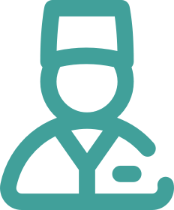查看更多
密码过期或已经不安全,请修改密码
修改密码
壹生身份认证协议书
同意
拒绝

同意
拒绝

同意
不同意并跳过





为响应国家鼓励医药创新相关政策、助推我国药物临床试验的质量规范化管理,由中国抗癌协会主办、全国多家医院承办、江苏恒瑞医药支持的2021年“真知卓践”药物临床试验质量管理规范(GCP)培训项目计划在全国多地召开系列培训活动。为此,本刊特邀中国抗癌协会继续教育与科技服务部部长阎昭教授与英国伦敦大学学院萧啟坚(Kai-Keen Shiu)教授,以中外行业专家的视角为此项目进行开篇致辞。
博士 主任药师 硕士研究生导师
中国抗癌协会理事 继教与科技服务部部长
医学伦理学专委会发 副主任委员兼秘书长
肿瘤药物临床研究专业委员会 常委
抗癌药物专业委员会 常委
天津市药物临床研究技术创新中心副主任
中国GCP联盟理事
天津市医院协会临床试验管理专业委员会主任委员
中国抗癌协会(CACA)是国家肿瘤领域中规模最大的一级学会,其在推动上市后临床研究中的主要作用为:
支持工作。通过搭建高水平的权威学术平台,收集了解临床专家的需求、想法以及临床中亟待解决的问题,并借助已在肿瘤领域深耕多年的制药企业力量,为我国医学学术活动的开展和学术成果的发表提供强有力支持。
监管与监察工作。一方面,CACA的多个专业委员会能够严格把关临床研究的质量与规范性;另一方面,由CACA发起的中国肿瘤临床试验稽查协作组,汇集了拥有丰富临床管理经验的GCP现场检查专家,能够为临床试验的高效、规范开展保驾护航。
以行业协会的视角,通过协会影响力与权威性,我们不仅能够帮助医疗机构从方案的科学性、可行性和可操作性等专业角度遴选更有价值的研究项目,还能够协助医药公司合规管理、应用研究经费,并整体监察项目的实施进程。
上市后临床研究实践是灵活的、波动的,但也必须是规范的。无论是研究者、医药公司,抑或是监管机构,我们都要时刻铭记以患者未来为根本的治疗初心。特别是对于研究者,应虚心学习临床研究管理方法,将研究数据转化为患者的生存获益,彰显医者仁心大义。事实上,跟随并非长久之计,我国人口众多、患者基数大,科研与研发创新能力不落人后,因此我们完全具备发现问题、解决问题的能力,而发现问题无疑是创新的源泉。当然,实现这一目标还需要社会各界的共同努力。
伦敦大学学院附属医院
英国皇家内科医师协会会员博士
伦敦大学学院附属医院胃肠肿瘤科顾问医生
原发灶不明癌症科和急性肿瘤科临床主任
在盖伊和圣托马斯医学院取得了医生资格
曾在伦敦圣乔治医院、皇家自由医院和伦敦大学学院附属医院接受内科肿瘤学培训
曾与癌症研究所和皇家马斯登医院的Alan Ashworth教授合作,并获得了癌症综合基因组分析博士学位
在伦敦大学学院的MRC临床试验部门获得了研究奖学金,与他们密切合作加快新型癌症临床试验设计的开发
开展肿瘤临床试验的目的,是为了提高患者生存率,让他们过得更好。因此把控临床试验的质量,需首先明确研究目的并看重研究的时效性,即带着“这项研究是为了满足哪些未满足的治疗需求?”等疑问开始早期的准备工作,争取将好的药物尽快投入到实际应用中。当然,即便是做到了好的设计与充足的准备,前期临床研究开展顺利,后续的试验结果也可能不符合预期。我认为Ⅰ期临床试验成功的关键是好的设计思路、精选入组人群,Ⅱ期临床试验需考虑是否纳入对照组并进一步扩大入组患者数,Ⅲ期临床试验则要更贴近临床实际情况。因急于求成而跳过以上任一步骤都有极大可能造成失败。
其次,研究者还需考虑患者的经济性因素,若药物价格超出患者经济承受能力,那么即便疗效肯定,药物也无法在临床中广泛应用。
最后,我认为科研团队的整体水平也是决定研究质量的关键,是提高质量监管的重要一环。在临床试验进行过程中,研究者需得到来自医药公司、数据分析人员、合规审查人员、成本分析人员等多方的支持,才能将好的药物尽快推向临床应用。
In cancer trials, generally, what we are trying to do is allow the patients with cancer to live longer and have a better quality of life too. Therefore, it is necessary to be very clear what the purpose of any clinical trial and pay attention to the fundamental question "What are unmet needs of a certain patient population and how will this study intend to address/overcome this need?" A thorough understanding of the relevant cancer biology from pre-clinical models is vital to create and test drugs which we can get into the clinic as soon as possible. In my opinion, the key to a phase I of the clinical trial, other to make sure it is safe drug and look for early signals of response is as biomarker exploration as we continue to learn how to treat patients in this era of personalized medicine. In phase 2 trials researchers should consider whether it should be randomized and/or biomarker stratified to accelerate validation of any biomarkers to take on in phase 3 which will also inform how best to structure trial schema and the statistical methodology. To me the greatest challenge is to ensure the correct design, safe conduct, and valid interpretation of the results of any phase 2 trial to avoid the incorrect design and therefore failure of a follow-on phase 3 trial.
I also think that access to any successful drug/combination should be considered even if its efficacy is certain. Cost-effectiveness may not equate to affordability – which is a societal decision based usually on limited resources and unlimited need. Of course, the results of subsequent trials may still not meet expectations in spite of a good science, trial design, adequate preparations and smooth study conduct. Therefore, it is important that trials with negative results are also published and data scrutinized as much as for positive trials so we can all learn from every trial.
Finally, I believe that the abilities of team and collaborative working are critical. During a clinical trial, researchers need support from multiple stakeholders, including but not limited to pharmaceutical companies, data analysts, compliance review personnel, health economists, etc., to promote good science and useful drugs to every day clinical practice as soon as possible.
近年来我参与了许多针对中国医学领域科研发展的相关讲座,并接触了许多从事肿瘤研究的青年学者。对于有抱负的年轻一代来说,关注热点问题更容易出结果,但前提是需要脚踏实地做事。为了提高临床研究的整体质量,我认为青年学者需在以下几方面有所关注。
首先,争取出国深造的机会,加强国际学术领域的交流沟通,大家互相学习、互相进步。值得一提的是,中国药物临床试验已在探索中形成了自己的开展标准,而不仅仅是与国际统一,这是非常值得肯定的。
另外,青年研究者的精力有限,无法一心多用,因此我们应该首先是一位有担当的好医生、懂得关爱患者,然后才能基于临床实际问题去开展有针对性的临床试验。
最后,在职业生涯的前5-10年,青年学者需规划好自己的未来发展方向,敢于尝试探索,灵活变通,并最终确定自己感兴趣的研究方向,这样才能在科研路上走得更长、更幸福。当然根本还是为了让更多患者获益。
In recent years, I have participated in many meetings and given lectures about the latest clinical trials and scientific development in the field of cancer.It is worth mentioning that Chinese drug clinical trials have now formed their own drug and therapeutic regulatory bodies which although adhere closely with international standards, should also reflect, and support the great potential of Chinese doctors whom I see work extremely hard and have many of their own ideas. Perhaps the most enjoyable have been with meetings of young doctors and scientists engaged in cancer research where we can bounce ideas off each other freely. The potential for them to be leaders in their field is obvious to me. Therefore, I believe it is supporting this young work force of clinical researchers which will improve the quality of clinical research in China. To those doctors, to not only succeed but also enjoy what they do, I would make some suggestions.
In the first 5-10 years of their career, they should plan their future development direction, dare to try, always be inquisitive, be flexible and resilient as nothing in science or medicine can be planned perfectly. I think oncologists need to learn to be resilient though it is not easy as we are dealing with a busy clinical workload, with patients who are often in sad or stressful situations. Once they have developed a clear idea of where their clinical and research skills are, a careful consideration of work-life balance is important as it is rare that a doctor can be not only an excellent physician for their patients, a world leading triallist and run a research laboratory i.e. all things to all people. I believe that to have a longer and happier career in scientific and clinical research they should strive for the opportunity to study widely, including if possible abroad and communicate with other researchers in the same field. When we collaborate, learn from each other, and share problems with each other we can learn to be resilient in order to reduce the risk of stress and burn out which is common in young oncologists.
查看更多